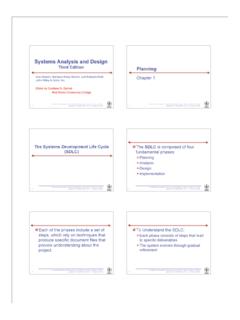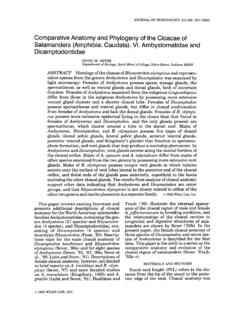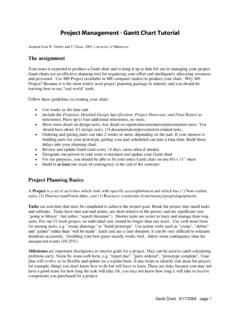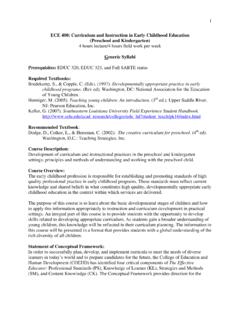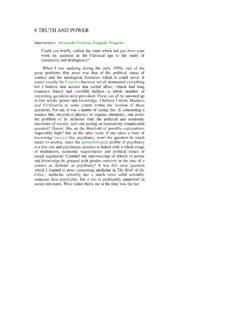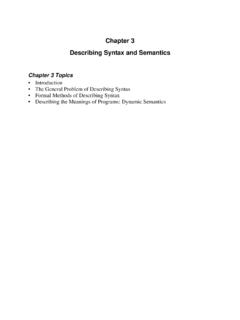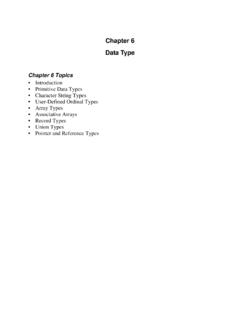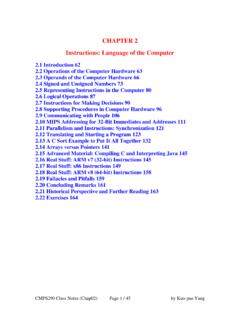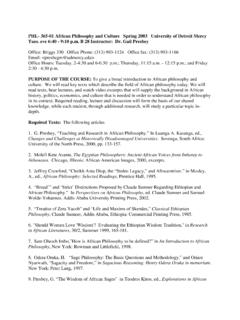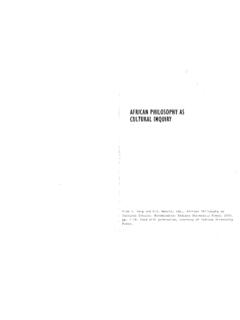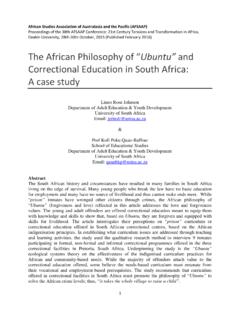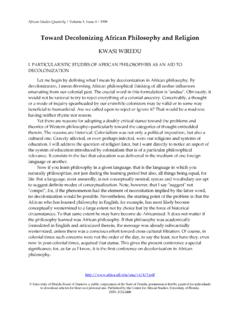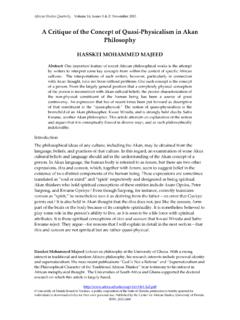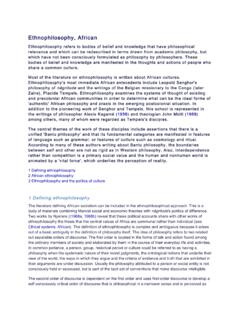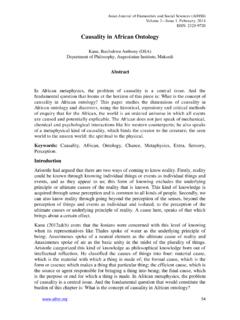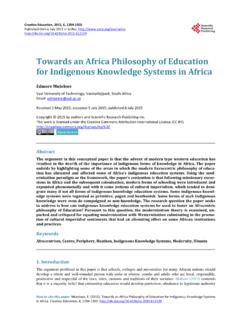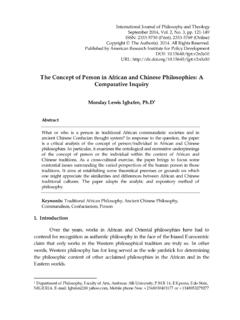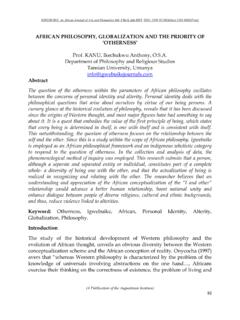Transcription of PERSON AND COMMUNITY IN AFRICAN
1 PERSON AND COMMUNITY IN AFRICANTRADITIONAL THOUGHTI feanyi A. MenkitiMy aim in this paper is to articulate a certain conceptionof the PERSON found in AFRICAN traditional thought. I shallattempt do this in an idiom, or language, familiar to modernphilosophy. In this regard it is helpful to begin by pointing toafew significant contrasts between this AFRICAN conception of theperson and various other conceptions found in Western first contrast worth noting is that, whereas mostWestern views of man abstract this or that feature of the loneindividual and then proceed to make it the defining or essentialcharacteristic which entities aspiring to the description" man"must have, the AFRICAN view of man denies that persons can bedefined by focusing on this or that physical or psychologicalcharacteristic of.
2 The lone individual. Rather, man is defined byreference to the environing COMMUNITY . As John Mbiti notes, theAfrican viewofthe PERSON can be summed up in this statement:" I am becauseweare, and since we are, therefore I am. " 'Oneobviousconclusion to be drawn from this dictum isthat, as far as Africans are concerned, the reality of the commu-nal world takes precedence over the reality of individual lifehistories, whatever these may be. And this primacy is meant toapply not only ontologically, but also in regard to epistemicaccessibility. It is in rootedness in an ongoing human community1 7 1 IFEANYI A. MENKITI PERSON and COMMUNITY in AFRICAN Traditional Thoughtthat the individual comes to see himself as man, and it is by firstknowing this COMMUNITY as a stubborn perduring fact of thepsychophysical world that the individual also comes to knowhimself as a durable, more or less permanent, fact of this the language of certain familiar Western disciplines, we couldsay that not only the biological set through which the individualis capable of identification by reference to a communal genepool,but also the language which he speaks and which is no smallfactor in the constitution of his mental dispositions and attitudes,belong to this or that specific human group.
3 What is more, thesense of self-identity which the individual comes to possesscannot be made sense of except by reference to these collectivefacts. And thus, just as the navel points men to umbilical link-age with generations preceding them, so also does language andits associated social rules point them to a mental commonwealthwith others whose life histories encompass the past, present, crucial distinction thus exists between the Africanview of man and the view of man found in Western thought: inthe AFRICAN view it is which defines the PERSON asperson, not some isolated static quality of rationality, will, brings us to the second point of contrast betweenthe two views of man, namely, theprocessualnature of being inAfrican thought--the fact that persons become persons only aftera process of incorporation.
4 Without incorporation into this orthat COMMUNITY , individuals are considered to be mere danglers towhom the description' PERSON ' does not fully apply. For PERSON -hood is something which has to be achieved, and is not givensimply because one is born of human seed. This is perhaps theburden of the distinction which Placide Tempels' native informantssaw fit to emphasize to the distinction between amuntumutupu(a man of middling importance) andmuntu muku/umpe(apowerful man, a man with a great dealofforce). Because theword"muntu" includes an idea of excellence, of plenitude of forceat maturation, the expression' ke muntu po', which translates as' this is not a man',2may be used in reference to a human , it is not enough to have before us the biological organism,with whatever rudimentary psychological characteristics are seenas attaching to it.
5 We must also conceive of this organism asgoing through a long process of social and ritual transformationuntil it attains the full complement of excellencies seen as trulydefinitive of man. And during this long process of attainment,the COMMUNITY plays a vital role as catalyst and as prescriber light of the above observations I think it would beaccurate to say that whereas Western conceptions of man go forwhat might be described as a minimal definition of the PERSON ---whoever has soul, or rationality, or will, or memory, is seen asentitled to the description' PERSON ' --the AFRICAN view reachesinstead for what might be described as a maximal definition of theperson. As far as AFRICAN societies are concerned, personhood issomething at which individuals could fail, at which they could becompetent or ineffective, better or worse.
6 Hence, the Africanemphasized the rituals of incorporation and the overarchingnecessity of learning the social rules by which the communitylives, so that what was initially biologically given can come toattain social self-hood, i. e. , become a PERSON with all the inbuiltexcellencies implied by the full personhood is not perceived as simply given atthe very beginning of one' s life, but is attained after one is wellalong in society, indicates straight away that the older an indi-vidual gets the more of a PERSON he becomes. As an Igbo prov-erb has it,"What an old man sees sitting down, a young mancannot see standing up. "The proverb applies, it' must be added,not just to the incremental growth of wisdom as one ages; it alsoapplies to the ingathering of the other excellencies considered tobe definitive of full personhood.
7 What we have here then is botha claim that a qualitative difference exists between old andyoung, and a claim that some sort of ontological progressionexists between infancy and ripening old age. Ohe does not justtake on additional features, one also undergoes fundamentalchanges at the very core of one's , admittedly, the whole idea of ontological progres-sion is something in need of elaboration. Offhand it may not sitvery well in the minds of those unaccustomed to the view ofpersonhood being presented here. The temptation might bestrong in some quarters to retort that either an entity isaperson or it is not; that there can be no two ways about it. Inresponse to this misgiving let me note that the notion of anacquisition of personhood is supported by the natural tendency inmany languages, English included, of referring: to children andnew-borns as It.
8 Consider this expression: "We rushed the childto the hospital but before we arrivedItwas dead. "We wouldnever say this of a grown PERSON . Of course, with a child ornew-born, reference could also be made by use of a personalpronoun, with the statement reading instead:" We rushed thechild to the hospital but before we arrived he/she was dead. "This personalizing option does not, however, defeat the point17 31 7 2 IFEANYI A. MENKITI PERSON and COMMUNITY in AFRICAN Traditional Thoughtpresently being made. For the important thing is that we havethe choice of anitfor referring to children and new-borns,whereas we have no such choice in referring to older fact, then, that a flexibility of referential- designa-tion exists in regard to the earliest stages of human life, but notin regard to the more established later stages, is something wellworth keeping in mind.
9 What we have is not just a distinction oflanguage but a distinction laden with ontological significance. Inthe particular context of Africa, anthropologists have long notedthe relative absence of ritualized grief when the death of a youngchild occurs, whereas with the death of an older PERSON , theburial ceremony becomes more elaborate and the grief more ritual-ized--indicating a significant difference in the conferral of ontolo-gical moving away from the foregoing observationsmade in support of the notion of personhood as acquired, let menote, in addition, that in AFRICAN societies the ultimate terminationof personal existence is also marked by an' it ' designation; thus,the same depersonalized 'reference marking the beginning ofpersonal existence also marks the end of that existence.
10 Afterbirth the individual goes through the different rites of incorpora-tion, including those of initiation at puberty time, before becom-ing a full PERSON in the eyes of the COMMUNITY . And then, ofcourse, there is procreation, old age, death, and entry into thecommunity of departed ancestral spirits--a COMMUNITY viewed ascontinuous with the COMMUNITY of living men and women, and withwhich it is conceived as being in constant John Mbiti, we could call the inhabitants ofthe ancestral COMMUNITY by the name of the"living dead."' Forthe ancestral dead are not dead in the world of spirits, nor arethey dead in the memory of living men and women who continue toremember them, and who incessantly ask their help through vari-ous acts of libation and sacrificial offering.
